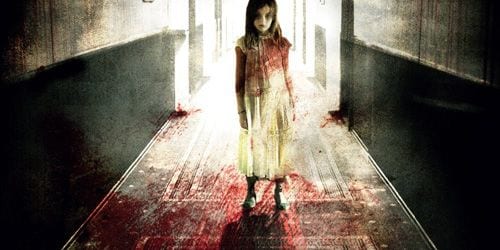
Mischa Barton, the actor who made her name starring in the SoCal-set teen drama The O.C. from 2003 to 2006, has always been a fairly engaging screen presence. Unrepresentative of the preening vanity so prevalent in material aimed at the late teen market, Barton embodied something a little different, conveying an appealing innocence and sincerity with both naturalism and ease, and it is these qualities that ensured she was the show’s greatest casting success. The O.C. was left bereft when Barton’s three season run came to an end, limping on for another year but never quite the same after her story arc came to its conclusion.
Unfortunately, Barton was unable to capitalize on this initial flush of televisual success. With her time on The O.C. over (she had some years previously also made a memorably terrifying appearance as a ghost in M. Night Shyamalan’s excellently creepy The Sixth Sense), her formerly easygoing screen demeanour became totally at odds with her real life, which began to spiral into disarray, unemployment and drunkenness, the latter of which, coupled with her deteriorating appearance, providing ample fodder for the tabloid photographers and freelance paparazzi that nocturnally stalk the streets of Hollywood.
However, if she is to successfully rebuild her career, this unusual, intriguing and romantic existential ghost story is an ideal vehicle. Despite the presence of Barton and a slew of other young and attractive actors, the interesting but flawed Into the Dark has little in common with the tiresome teen horror genre overall (although Barton would certainly have formerly been a shoo-in for that kind of stuff), and thankfully, the final product demonstrates some ambition.
Director Mark Edwin Robinson certainly shows a keen eye for innovative visuals — utilising such devices as time lapse and super slow cross-fades — and as a result, he has created a film with a style that is intermittently more reminiscent of certain scenes in Godfrey Reggio’s mesmerising Koyaanisqatsi than accessible and wholly mainstream genre fare such as I Know What You Did Last Summer and the Final Destination series.
Into the Dark stars Barton as Sophia Monet, a young woman struggling to come to terms with the death of both of her parents in a very short space of time. Battling depression and trying to comprehend the meaninglessness of life and the finality of death, the atheistic Monet then meets Adam (Ryan Eggold), who enters her life and her heart and quickly comes to represent a tonic to soothe her battered constitution. However, when he suddenly disappears and Monet focuses her energies on finding him, she must confront the possibility of another plane of supernatural existence, one that she may have to enter in order to find Adam, rekindle her love and complete her emotional redemption.
Whilst this may all sound like esoteric spiritual fluff, Into the Dark nevertheless aims high and strives for occasional profundity, and whilst it doesn’t often hit the mark, the film should still be commended for attempting to examine a variety of bold themes surrounding the subject of death and the afterlife, particularly the unanswerable biggie: do people merely transition into emotional and physical oblivion when the moment of death arrives, or does their spirit continue in some astral realm elsewhere?
The technical credits of Into the Dark are generally good. Eduard Enrique Mayen’s cinematography is divided into a colour palette along thematic lines: during the film’s first half, Monet’s new, fragile and optimistic relationship with Adam is shot with crisp, fresh and overexposed white hues, whereas the film’s tonally darker second half is visualised accordingly, with shadow and contrast creeping in to the proceedings to heighten tension and supernatural intrigue.
Editor Eric Lalicata keeps the pace breezy too, and he ensures that the beautiful and highly stylised sequences, the ones that have the potential to break the film’s meta-discourse, remain fleeting, unobtrusive and non-gratuitous. (The aforementioned time lapse shots are certainly great to look at, but they can be dangerously self-conscious within a fictional narrative).
Overall Into the Dark is a noble attempt to tackle those metaphysical subjects that can never attract conclusive or definitive answers. Like a stripped down version of Ghost without the cloying sentimentality, Into the Dark is nevertheless a moving film, albeit problematic, and it draws its strongest emotional pull not from spook house scares or derivative horror tropes, but rather from the aching, yearning question of whether death truly represents the moment that we must say goodbye to our loved ones forever.
There are no extras on the disc.

![Call for Papers: All Things Reconsidered [MUSIC] May-August 2024](https://www.popmatters.com/wp-content/uploads/2024/04/all-things-reconsidered-call-music-may-2024-720x380.jpg)



